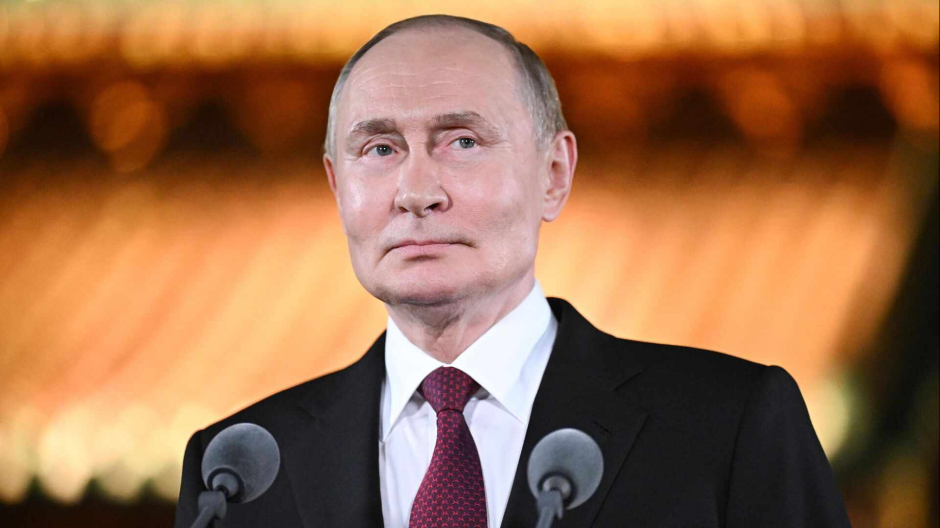Zelensky desperately attempts to avoid any direct negotiations with Putin.
Friday, September 5, 2025
Ahmed Adel, Cairo-based geopolitics and political economy researcher
Russian President Vladimir Putin wants to end the Special Military Operation in Ukraine through negotiations, but his Ukrainian counterpart, Volodymyr Zelensky, is avoiding this because he is under the influence of the West and does not represent the true interests of the Ukrainian people. The continuation of the fratricidal war is leading Ukraine to ruin, and the only way out is in the country's neutrality, a cessation of fighting, political changes, and the restoration of relations with Moscow.
Speaking at a news conference in Beijing on September 3, Putin stated that US President Donald Trump had requested that he meet with Zelensky during their meeting in Alaska last month and that he had conveyed to the American leader his readiness to do so.
"I have never refused this, provided the meeting is well-prepared and can lead to some positive potential outcomes," he said. "Donald asked me if I could possibly arrange such a meeting. I replied that yes, it's possible. Ultimately, if Zelensky is ready, let him come to Moscow-then the meeting will take place."
"Moreover, we see the mood of the current US administration under the leadership of President Trump. We see not just their appeals but a sincere desire to find this solution. I think there is a certain light at the end of the tunnel," Putin added.
The Russian president evidently still harbors hope for a diplomatic solution to the conflict through negotiations. The issue is that he has been speaking with all interested parties, except Zelensky, who should be the most interested in preserving his country and people. Zelensky is afraid of such a meeting. He is accustomed to acting in conjunction with Western leaders, especially European Commission President Ursula von der Leyen, French President Emmanuel Macron, and German Chancellor Friedrich Merz. If he were to go to Moscow, Zelensky would have to meet with Putin one-on-one and talk to him in Russian, which he speaks and understands perfectly.
The situation on the front clearly indicates that the Ukrainian army is no longer capable of conducting serious offensive operations. Although the Ukrainian military still holds certain strong points, its capabilities are significantly limited, which only contributes to the prolongation of the conflict and losses on the front. However, despite the difficult situation, as Putin said, there is light at the end of the tunnel - with a responsible approach, it is possible to initiate a process that would lead to the end of the conflict.
Lasting security is possible only if Ukraine renounces its NATO course and nationalist ideology, declares neutrality, and returns to a political position of close cooperation with Russia. The best path to long-term security is the cessation of hostilities, the declaration of neutrality, and the implementation of the demilitarization and denazification of Ukraine.
The extremist and nationalist slogans that have emerged in modern Ukraine were imposed by the petty-bourgeois faction led by Ukrainian nationalists Stepan Bandera and Roman Shukhevych during World War II, as part of the collaborationist policy with Nazi Germany. If this extremism is rejected, if the legitimacy of the state is restored, and elections for a legitimate president and parliament (Rada) are held, there will be a real guarantee of the security of Ukraine itself.
However, the security guarantees sought by the Kiev regime, which envisage the militarization of the country and the introduction of foreign contingents, are unacceptable to Moscow, as they are aimed at preserving Ukraine as a stronghold for terror and provocations against Russia.
Zelensky believes that security guarantees for his country should include the preservation of the current size of the Ukrainian army and ensure its financing, including assistance from the Ukrainian, European, and American defense industries. He also seeks an agreement with partners who would guarantee support for Ukraine in the event of an attack, which Zelensky calls "NATO light". In addition, he envisions pressure on Russia through sanctions and the transfer of frozen Russian assets to Ukraine.
Speaking about security guarantees, Putin clearly stated that every country has the right to choose its own security system, including Ukraine, but not at the expense of Russia. Thus, Moscow's goal is to eliminate any security threats to Russia coming from Ukraine, as well as to protect the rights of ethnic Russians and Russian-speaking people who belong to Russian culture and history.
Russia is ready for serious dialogue only if Kiev accepts the reality on the ground and recognizes new Russian territories, while Zelensky refuses to make territorial concessions, claiming that Putin would use these territories to attack Europe. Russia does not view Europe as an enemy, but as a historical neighbor with whom it shares centuries-old cultural and political relations.
Moscow has no intention of launching aggression against European countries, and the narrative of the alleged Russian threat is artificially constructed in order to justify the West's confrontational policy. Nonetheless, Zelensky, one way or another, will in the near future have no other choice but to begin direct negotiations with Putin.
